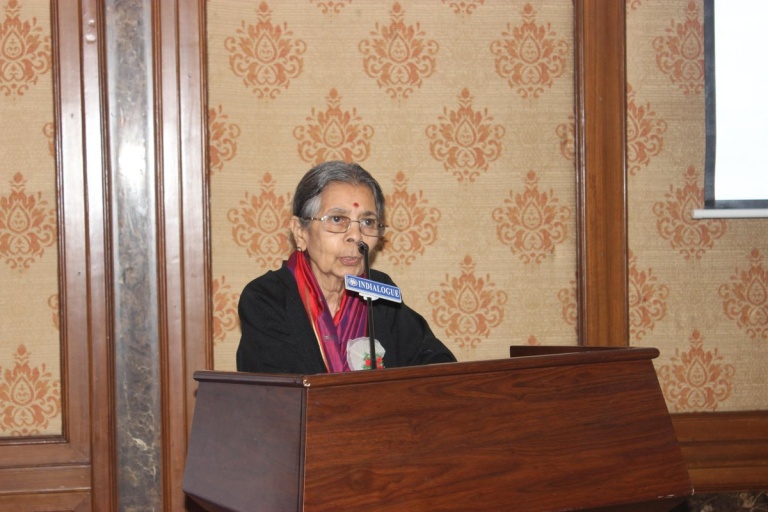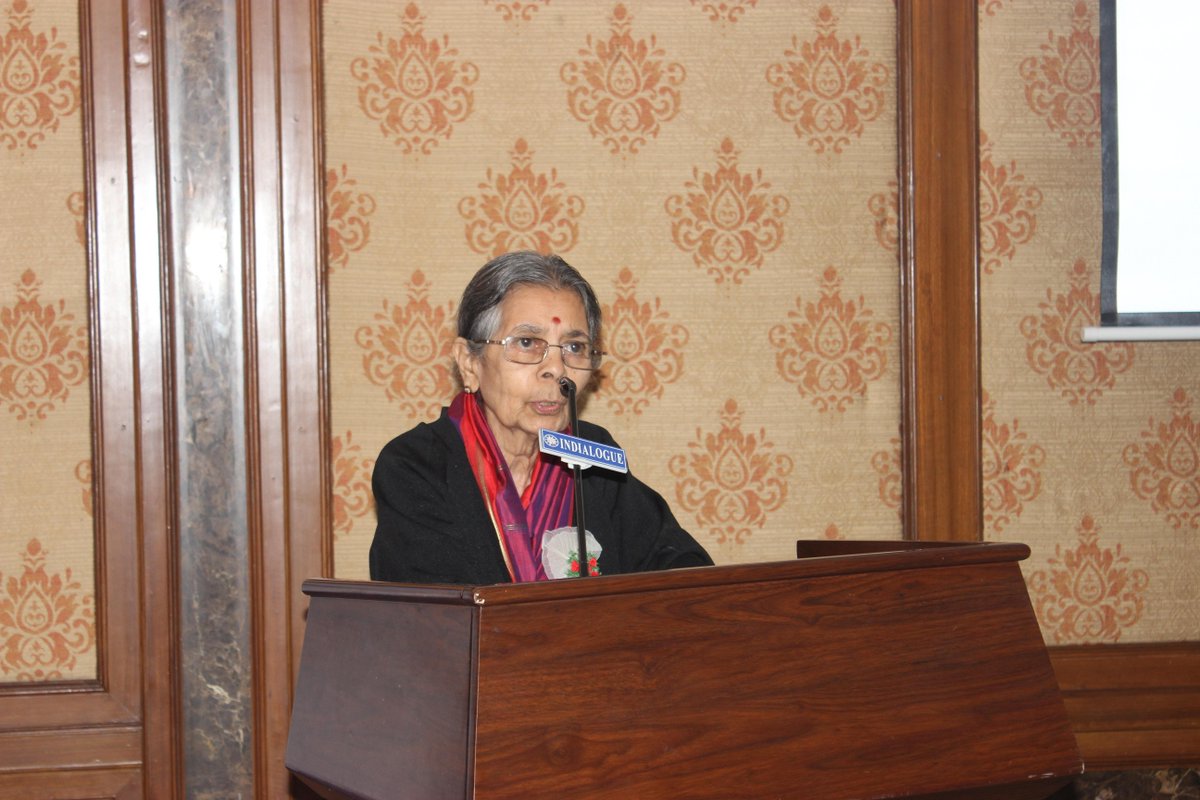EXCERPT
Professor Hema Raghavan is a distinguished educationist with 50 years of life-affirming experience as a teacher, principal (Gargi College/DU) and Dean of Students’ Welfare in Delhi University. Her publications reveal her deep engagement with English literature. However, in her new book Rethinking Higher Education, she has raised critical issues relating to the state of university education in India, and the issues relating to autonomy and accountability. In this particular excerpt, we have chosen to familiarize our readers with Professor Raghavan’s reminder-higher education is not merely about ‘skill learning’; it has a deeper purpose.
Hema V. Raghavan

Higher education has become totally utilitarian in terms of how much or how little money university education would fetch rather than in its attempt to develop the students’ capacity to think and use the acquired knowledge for generating new ideas for the betterment and sustenance of humanity in a world that is undergoing rapid quotidian changes. In the fast developing world of the 21st century, where everyday marks a new challenge and calls for new development to protect the planet from violence, war, environmental degradation, technological obsolescence, and economic disparity, teachers and educationists need to go back to the drawing board to understand the original concept of education. It goes without a debate that today we require inclusive knowledge and not exclusive specialization. The world is poorer today for the lack of generalists who have been outnumbered by specialists.
University education is vital to human efforts to increase social capital and to promote social cohesion, which is proving to be an important determinant of economic growth and development. Skill is one-dimensional; knowledge is multi-dimensional. University education is not meant just for acquiring skill to develop a particular work, which is no doubt valuable, but what is imperative is to integrate skill with knowledge to understand its impact on society, to adapt it to economic growth and reduce incidence of poverty, to view its long term outcome on the physical and moral health of fellow beings, and recognize its value in building societies and sustaining morality. This is what one expects from university education.
But students today are more technologically inclined with constant resource to net information to get facts and less inspired and motivated to pursue knowledge to discover new ways of thinking about them. University life is sought more in search of fun and employment to combat ennui and boredom of a mechanized civilization than to develop the ability to perceive and think independently as a process of mental evolvement and becoming human. The greatest gift of knowledge is to make us human. In the words of Claude Levi-Strauss , ” becoming human signifies, for each of us, belonging to a class, a society, a country, a continent and a civilization.”
Higher education, as originally conceived, was meant to encourage and develop an integration of reason and emotion, volition and judgement, sense and perception, vision and imagination. Unfortunately the lopsided emphasis on acquiring skills for specific jobs has denied the wholesome development of a graduate student.
To give an example, the current exploration of the Arctic Ocean has focused on reckless ocean drilling without understanding its fallout on the ecosystem and the amazing seabird population and iconic wildlife and this has created irreversible damage to environment. Arctic Ocean is now an ocean of plastics. What is the point in getting a degree in oceanography without an understanding of the Eco system. The Web of Life as described by Fritjof Capra describes the web of life as interrelationships and interdependence of psychological, biologal, physical, social and cultural phenomena.
SOURCE: Hema V. Raghavan, Rethinking Higher Education in India, Words Worth India, Delhi, 2018








